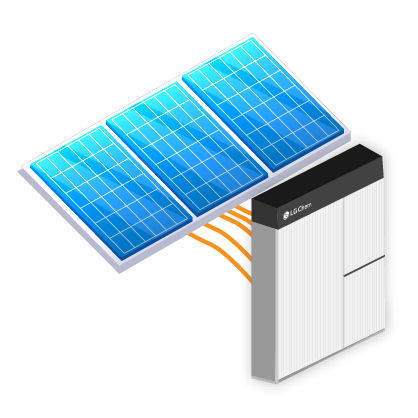Summer Heat Waves Cause Blackouts in California – Here’s How Batteries and Solar Can Help
In the past week, record-breaking heat waves have hit the majority of the US. In California, the temperature is skyrocketing leaving numerous cities with new records for the highest temperature at this time of the year.
Whatever the reason is for this absurd heat, the outcome is the same – a greater need for the AC, a higher electric bill, and an increased chance of a power outage occurring from the electrical grid getting overloaded.
In fact, there have already been outages across California that have affected over 20,000 electric customers.
For residents with a home battery or solar panel system, power outages are not much of a concern. In this post, we will take a look at how home batteries and solar can help you during these events.
Heat Waves and Power Outages
During a heat wave, there is a natural increase in demand for electricity. This is because everyone is using their AC more than usual to compensate for the hotter temperature. Because utility companies cannot efficiently store massive amounts of energy, to meet a higher demand they must generate more energy at that moment. Sometimes the demand is so high that they cannot meet it, and they will need to force power outages to suppress demand.
It is very important that an energy company keeps its energy generation very close to their energy demand. Otherwise, their systems may overload and cause a more widespread blackout, which may take weeks to fix.
Home Batteries Provide Backup Power During a Blackout
A home battery allows you to store electricity for use at a later time. This electricity can come from your solar panel system or even from the electrical grid itself. A solar panel system is not necessary to benefit from a home battery, but as you will see shortly, it enables you with much more flexibility and freedom in your energy use.
Depending on its capacity, a fully charged home battery by itself may be able to provide your household with enough energy for about a day or two in the case of a power outage. This is dependent on how conservative you are with your energy consumption as well as the capacity of your battery. Most home batteries have a capacity of about 10 kWh, but it is possible to purchase ones with more or less, as well as installing multiple batteries at one residence.
Although a home battery by itself can supply you electricity for a day or so during a blackout, it is not possible to recharge the battery unless it is connected to a renewable energy system like solar.
Solar Panels Themselves Cannot Provide Power During Outages
A solar panel system by itself is great, but it still is not sufficient during a power outage. Without having a home battery connected with your solar panel system, your utility company will cut off your electricity and not allow your panels to feed their energy to your home or back into the grid. This is a safety precaution for the utility crews that may be doing electrical work in your vicinity.
The only way to have energy accessible during a blackout is to have it stored in a home battery. When your home battery is connected with a solar panel system, instead of being limited to just a day or so worth of electricity, you now have no limits on the total amount of energy you can generate and store in your battery for use.
Since you cannot charge your battery with electricity from the grid, the electricity being generated from your solar panels is fed directly into your battery until it is fully charged again. This will occur each day, so even if you are experiencing a week-long power outage, you still will have as much energy available as your panels will generate and batteries will store.
Preparing for a Heat Wave and a Blackout
One way to ensure that you will have enough energy during a blackout is by keeping your home battery fully charged in times where a blackout may be more likely. In the case of a heat wave, a power outage may be more likely to occur due to an increase in demand.
If you want to make sure that you will always have access to electricity, the most effective way to do this is by installing a solar panel system and home battery so you are unrestricted in your generation and storage abilities. Get started today with one of our experienced energy advisors and see what options are available for you!








